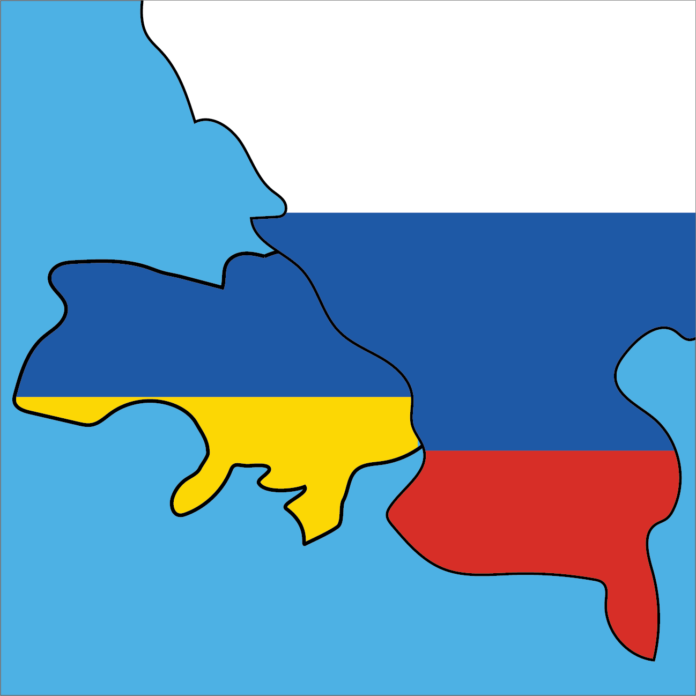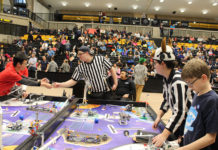After a generation of peace, Europe is at war again. In a move that seems to harken back to the days of World War 2 and the Cold War, Russia is in its second week of an unprovoked and belligerent invasion of Ukraine.
Emboldened by their successes in the annexation of Crimea in 2014, as well as by Western reluctance to contain the aggressor, at the time of writing, Russian forces continue to attack Ukraine’s major cities and infrastructure, with vacuum bombardment and rocket attacks on major administrative buildings in Kharkiv. It is also a preview of what Ukraine’s capital, Kyiv (pronounced keevh), can expect in the coming days.
Russian President Vladimir Putin has ordered the Russian nuclear capability to be on high alert, Ukrainian President Vlodomyr Zelensky and his cabinet have taken up arms and U.S President Joe Biden has vowed to sanction Russia to limit its aggression and to bring it back to the diplomacy table. But will the Kremlin see reason?
Western sanctions have targeted Russian financial institutions, especially the country’s central bank. Western countries including Canada, the United States and the U.K have frozen Russian assets and suspended interaction with Russia’s sovereign wealth funds in an attempt to withhold Russia’s access to international currency reserves (approximately $630bn in dollar reserves) to prevent further attacks on Ukraine. In a ‘maximum pressure campaign’, the Western world is aiming to suffocate the Russian economy, as well as the wealth of its oligarchy, financial institutions and its paramilitary organization the Wagner group.
Personal sanctions against President Putin, his close guard and his staunch supporters like Foreign Minister Sergei Lavrov have also been introduced. In fact, the Western alliance has also restricted certain Russian banks from the SWIFT (Society for Worldwide Interbank Financial Telecommunication) financial payments system in order to prevent Russian banks from making instant transactions across borders. All this is done to cripple the Russian economy and persuade Putin to yield the attacks on Ukraine.
Despite these measures, it has been a few weeks of active hostilities, and Russia does not seem to be backing down. Russian forces are slowly but surely advancing towards Kyiv, with seemingly little obstruction despite the Russian ruble plummeting 30% against the U.S dollar, in a historical low that has never been seen before, not even at the time of the world wars.
It appears that Western allies are playing a long game of generating widespread social unrest within Russia and creating incisions in its economy to deter Putin with domestic turmoil, which could potentially act as a deterrent to international war. However, this is a precarious strategy.
Firstly, this strategy is a long game, and does not guarantee success, nor does it help Ukraine in the short run. While anti-war protests have taken place in 50 Russian cities including Moscow and St. Petersburg, more than 5,250 protesters have been arrested by the riot police. As always, Russia demonstrated a remarkable ability to silence dissent — and this is particularly worrisome because Western strategy rests on internal pressure to deter Putin.
Secondly, sanctions do not appear to be hampering Russian aggression toward Ukraine. If the invasion continues — and at this stage, it’s not looking like Russia is backing down — it is possible that the war will lead to the death of thousands of soldiers (from both sides) and civilians, with hundreds of thousands displaced as refugees and a loss of key infrastructure.
The ramifications of this will be tangible around the globe. The UNHCR has reported that approximately 660,000 people have been forcibly displaced and fled to nearby countries including Poland, Romania, Hungary and more, and this number is expected to rise exponentially in the coming weeks.
Amidst the global COVID-19 pandemic, which is only beginning to ebb, a massive wave of refugees will bring many challenges. While Western allies trip over themselves condemning the invasion and detailing how sanctions will bring Russian oligarchs and companies to their knees, a Russian oil baron having his accounts frozen does little to help those still trapped in Ukraine whose homes and livelihoods are being destroyed by Russian aggression.
In response to the invasion, Zelensky is advocating for Ukraine to be accepted into the North Atlantic Treaty Organization (NATO), an intergovernmental military alliance among 30 countries across Europe and North America, and the European Union (EU).
An expedited NATO and EU membership for Ukraine could potentially signal to Putin that the Western allies have not deserted Ukraine, nor have they abandoned the rules-based international order, and are willing to offer protection and deterrence against Russian aggression.






























